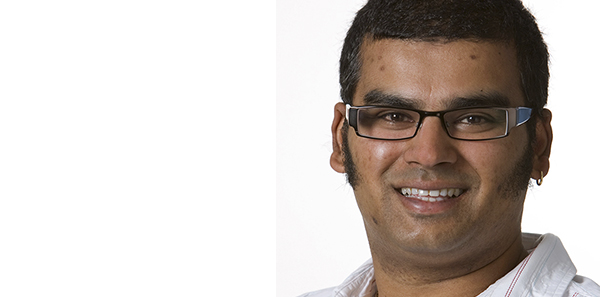1:30min

Dr James Armitage
_______________________________
By Kirsty Machon
Journalist
Deakin University has introduced a new entry scheme for students from regional, rural and remote areas wanting to study optometry, in a bid to increase the proportion of non-metropolitan students in the course.
Students from eligible non-metropolitan areas are now able to apply to study optometry at Deakin through a pathway that enables the university to consider more than just the Australian Tertiary Admission Rank (ATAR) score.
The required ATAR score for the Deakin optometry course has risen over the past three years, from 91 in 2012 to 95 in 2015, resulting in the majority of optometry applicants now coming from secondary schools in Melbourne and Sydney.
Dr James Armitage, head of vision science and senior academic mentor, says this trend may disadvantage some regional and rural students for a number of reasons that may be out of the control of the student. According to Dr Armitage, the ATAR score alone may not reflect a person’s potential to do well in the course.
The Optometry Regional and Remote entry scheme allocates ‘bonus points’ to non-metropolitan applicants for the program, according to a sliding scale.
Applicants from remote areas, where workforce shortfalls are known to be more of a problem, are weighted with a higher number of points, followed by outer regional and inner regional applicants.
The overall number of places offered will not change. The university is keen to boost the proportion of students from non-metropolitan areas because of evidence from health workforce studies suggesting that students who grow up in rural and regional settings may be more likely to work in those areas following graduation.
‘There is good research to suggest that by selecting a good proportion of students from rural and regional areas and providing them opportunities for extended training in rural and regional practices, we will produce work-ready graduates to supply the needs of regional Australia,’ Dr Armitage said.
Optometry Australia CEO, Genevieve Quilty, welcomes the Deakin initiative.
‘We are hopeful that along with the approaches of our other schools of optometry, this will help ensure that optometry services meet demand in all areas,’ she said.
Optometry Australia workforce data and modelling published in May 2015 do not suggest that there is an overall shortage of optometry graduates, and according to projections, future supply is likely to outstrip demand.
However, there is evidence that the workforce is not necessarily well-distributed, with rural and more remote areas being the most susceptible to an undersupply relative to demand. Despite the periodic oversupply of GPs, for example, it has proved difficult to encourage doctors to relocate to areas where there are health service shortages.
Deakin University associate head of school, Professor Alex Gentle, says that if the optometry initiative is successful in its aims, it could become a model elsewhere in the school of medicine.
Collaborative opportunity
Deakin hopes that a recent invitation to discuss its course model with optometry faculty staff at State University of New York (SUNY) may lead to future collaboration between the institutions.
Dr James Armitage visited SUNY in October, where he talked about the role of problem-based learning in the Deakin curriculum model.
‘Problem-based learning has certainly been widely used as a vehicle for teaching students about the treatment of disease, but you can also use problem-based learning to stimulate students to focus on the idea of the patient as a whole person, taking into account ethical, moral, legal and other broader issues in a consultation, and build that awareness in to their communication,’ Dr Armitage said.
Dr Armitage said that alongside fellow Deakin academic Dr Richa Verma, he had the chance to learn about developments in multifocal electroretinography, a technology in which SUNY academics are international leaders.